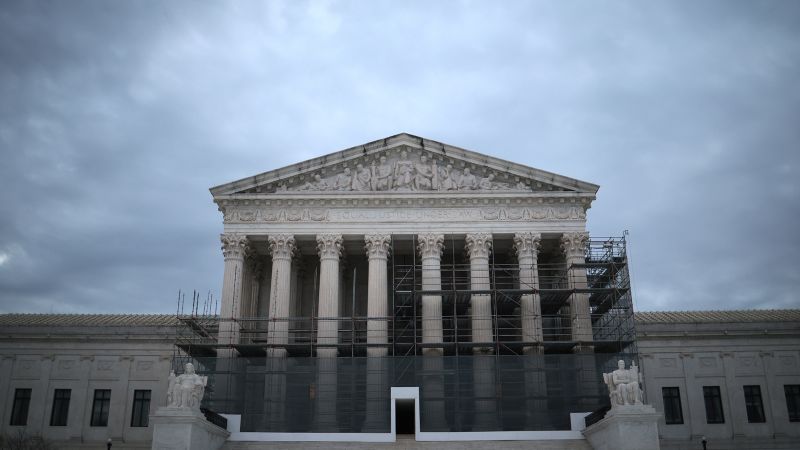
Supreme Court may uphold programs aimed at bringing internet to rural, poor neighborhoods
CNN
The Supreme Court appeared sympathetic Wednesday to a series of programs geared toward expanding high-speed internet in rural and poor communities, despite a challenge from a conservative group claiming funding for that effort violates separation of powers principles.
The Supreme Court appeared sympathetic Wednesday to a series of programs geared toward expanding high-speed internet in rural and poor communities, despite a challenge from a conservative group claiming funding for that effort violates separation of powers principles. After nearly three hours of argument, several of the court’s conservatives – along with all of its liberals – raised concerns about a ruling that could upend the way other federal agencies function, including the Federal Reserve and the Securities and Exchange Commission. If the court upholds the structure of the Federal Communications Commission’s funding for the programs, it would represent a departure from its trend in recent years of significantly limiting the power of agencies to act without explicit approval from Congress. “These are the services that all the rest of us take for granted that you can’t take for granted in rural North Dakota,” Justice Elena Kagan, a member of the court’s liberal wing, said in summarizing her reading of the law. “And what this program says is that rural North Dakota citizens should also get what all the rest of us have long had.” Congress created the Universal Service Fund in 1996 to pay for efforts to expand broadband and phone service in rural and low-income urban parts of the country. Telecommunications companies contribute billions to that fund – a cost that is passed on to consumers – to pay for programs like E-Rate, which lowers the cost of high-speed internet for libraries and schools. A conservative “consumer awareness group” challenged that fund as an unconstitutional “delegation” of the power of Congress to levy taxes. What’s worse, the group argues, a private entity calculates the amount of money that must be contributed. The Supreme Court has not invoked the nondelegation doctrine – or the idea that Congress cannot delegate its authority – since the 1930s. It has, for decades, permitted delegations under certain conditions.

Campaign spending has smashed records in Wisconsin’s high-stakes Supreme Court race, as megadonors from both parties are directing millions to the closely watched election that’s set to decide ideological control of the battleground state’s high court. And tech billionaire Elon Musk is flexing his growing political influence after his key supporting role in President Donald Trump’s 2024 campaign.

The Trump administration’s major military mission at the southern border focused on reducing immigration and drug flows has already cost taxpayers more than $300 million, according to sources briefed on data from the Defense Department comptroller — even as the administration has vowed to slash the size of government and cut 8 percent from the department’s budget.

A PhD student was snatched by masked officers in broad daylight. Then she was flown 1,500 miles away
Tufts University PhD student Rumeysa Ozturk was walking alone Tuesday night to meet friends at a dinner where they would break their 13-hour fast when six plainclothes officers suddenly encircled her on the street near her apartment in Somerville, Massachusetts, surveillance video shows.





















 Run 3 Space | Play Space Running Game
Run 3 Space | Play Space Running Game Traffic Jam 3D | Online Racing Game
Traffic Jam 3D | Online Racing Game Duck Hunt | Play Old Classic Game
Duck Hunt | Play Old Classic Game








